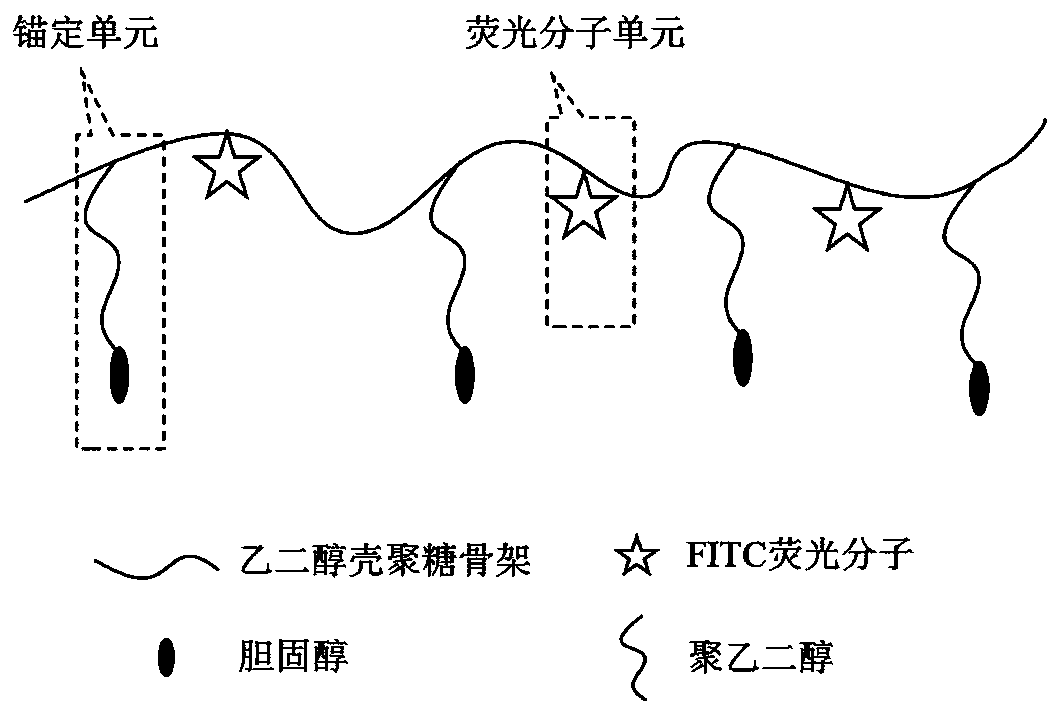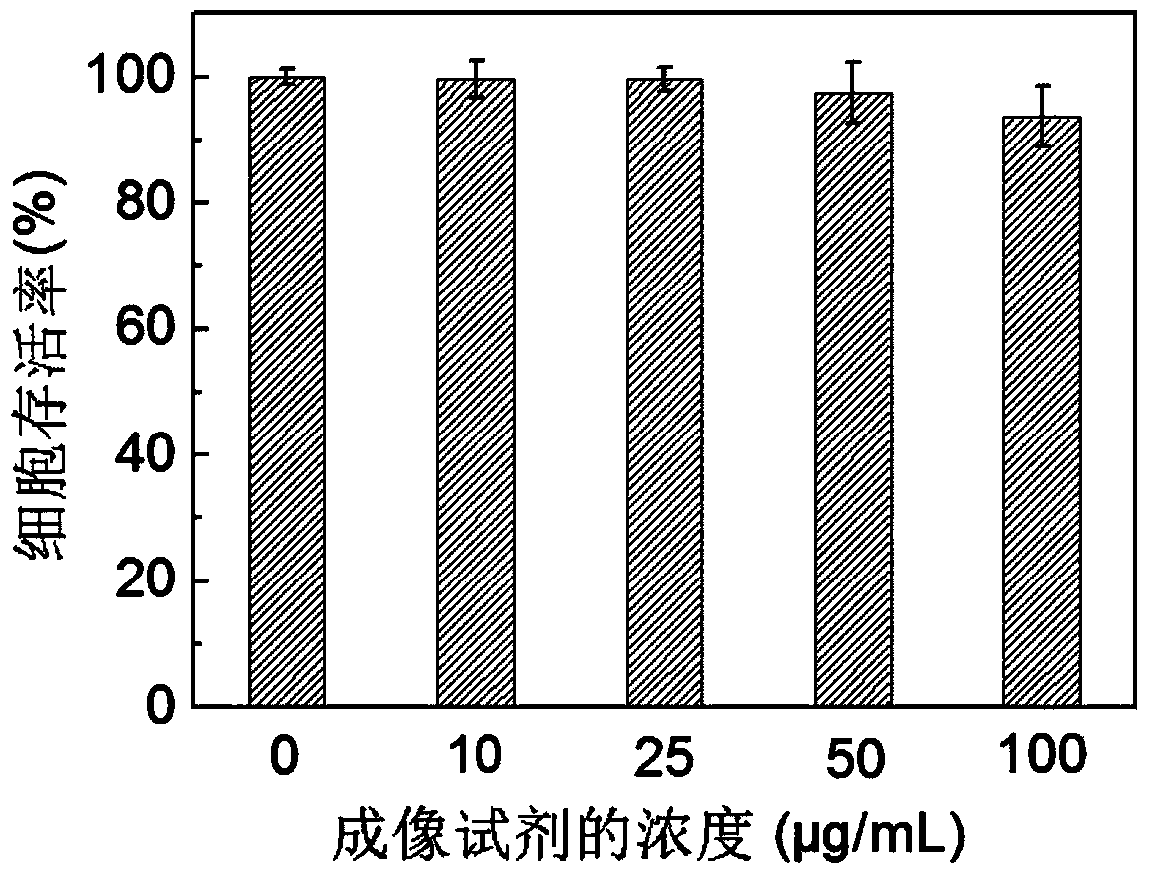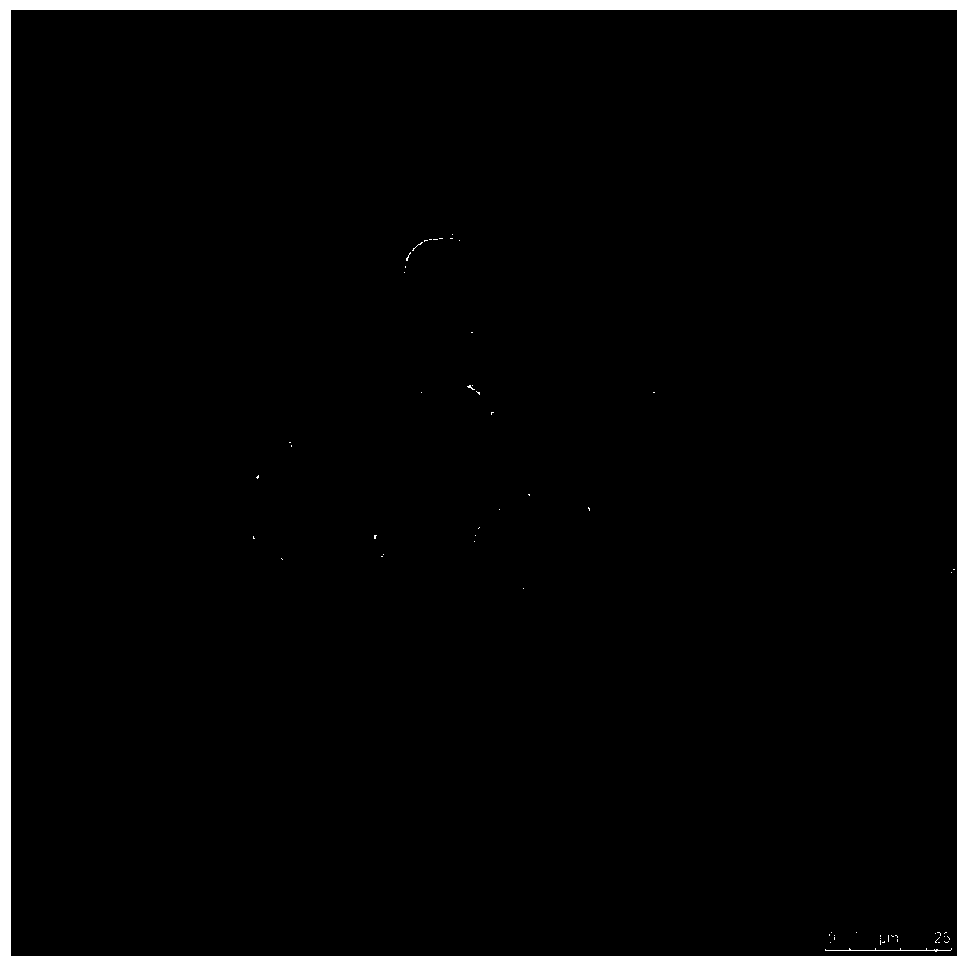Fluorescence imaging reagent for cell membrane based on multi-site anchoring and preparation method thereof
A multi-site anchoring, fluorescence imaging technology, applied in fluorescence/phosphorescence, chemical instruments and methods, luminescent materials, etc., can solve problems such as difficult large-scale application, difficult technological breakthrough, cell endocytosis, etc. Improve dyeing efficiency and good biocompatibility
- Summary
- Abstract
- Description
- Claims
- Application Information
AI Technical Summary
Problems solved by technology
Method used
Image
Examples
Embodiment 1
[0027] The multi-site anchored cell membrane fluorescence imaging reagent chitosan-30% cholesterol-2% FITC design, synthesis and cell membrane fluorescence staining methods are as follows:
[0028] Reagent design: The molecular structure diagram of the imaging reagent is shown in figure 1 , the reagent is based on glycol chitosan macromolecules, and the side chain contains 30% polyethylene glycol 2000-cholesterol (PEG2000-cholesterol) hydrophobic units and 2% FITC fluorescent units. The ethylene glycol chitosan macromolecule has good biocompatibility and water solubility, and its molecular weight needs to be greater than 10,000. The cholesterol hydrophobic unit is linked to the chitosan amino group through PEG2000, and the PEG chain segment can increase water solubility. The FITC fluorescent molecule is directly linked to the chitosan macromolecule through reaction with amino groups, and the FITC fluorescent molecule realizes fluorescence imaging. The cholesterol hydrophobi...
Embodiment 2
[0033] The implementation method of the present embodiment is consistent with the method in Example 1, except that the high molecular weight of glycol chitosan selected is about 100,000, and the percentage of the cholesterol anchor unit accounting for the chitosan repeating unit number is changed from 30% to 10%. , the composition of the synthetic imaging reagent is chitosan-10% cholesterol-2% FITC, and the imaging effect after staining is shown in Figure 3(b).
Embodiment 3
[0035] The implementation method of the present embodiment is consistent with the method in Example 1, except that the high molecular weight of glycol chitosan selected is about 10000, and the dyeing time is extended from 5min to 1 hour, and the imaging effect after dyeing is shown in Figure 3 (c) Show. It can be seen from the figure that although the staining time was prolonged, it did not cause obvious internalization of the dye.
PUM
 Login to View More
Login to View More Abstract
Description
Claims
Application Information
 Login to View More
Login to View More - R&D
- Intellectual Property
- Life Sciences
- Materials
- Tech Scout
- Unparalleled Data Quality
- Higher Quality Content
- 60% Fewer Hallucinations
Browse by: Latest US Patents, China's latest patents, Technical Efficacy Thesaurus, Application Domain, Technology Topic, Popular Technical Reports.
© 2025 PatSnap. All rights reserved.Legal|Privacy policy|Modern Slavery Act Transparency Statement|Sitemap|About US| Contact US: help@patsnap.com



